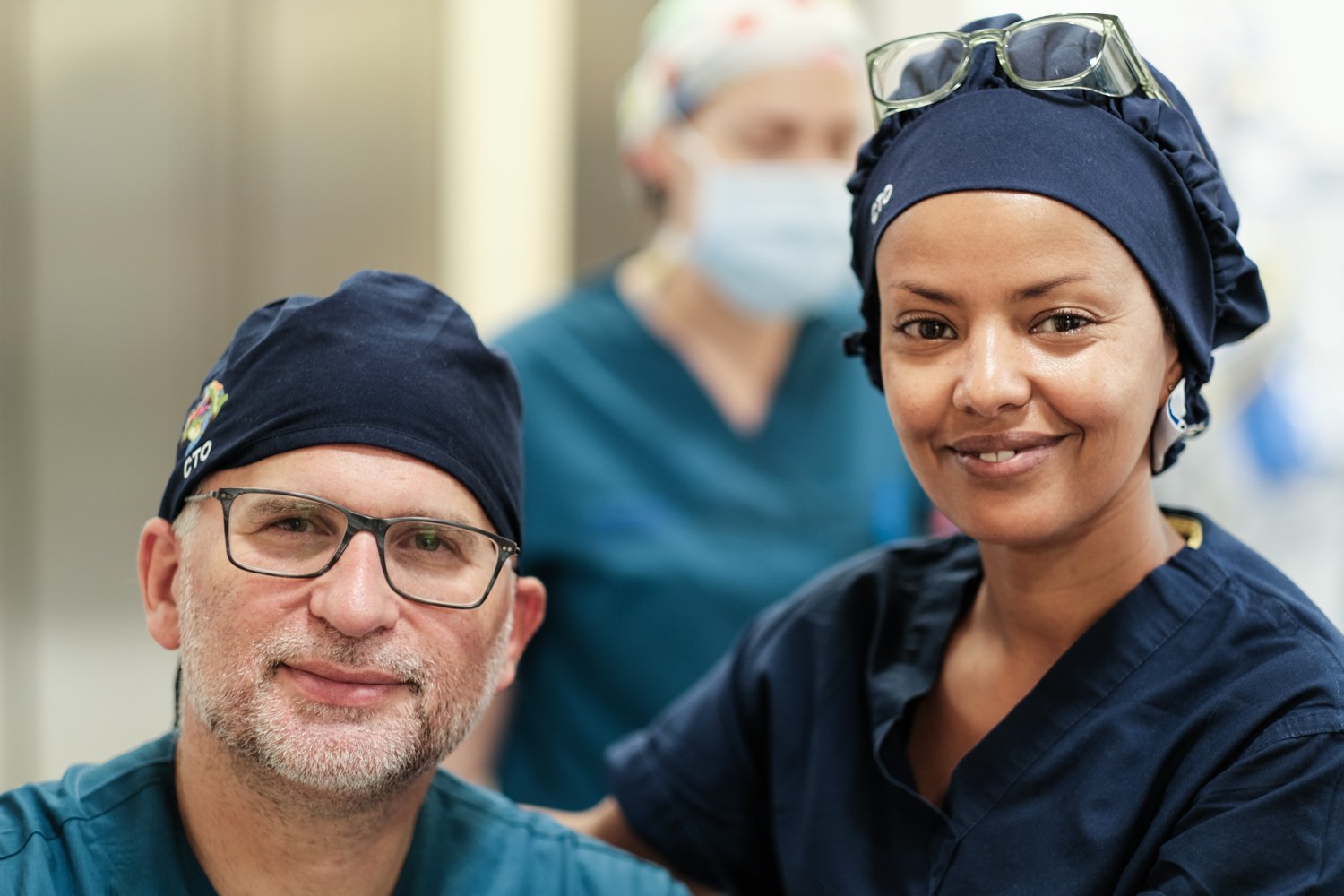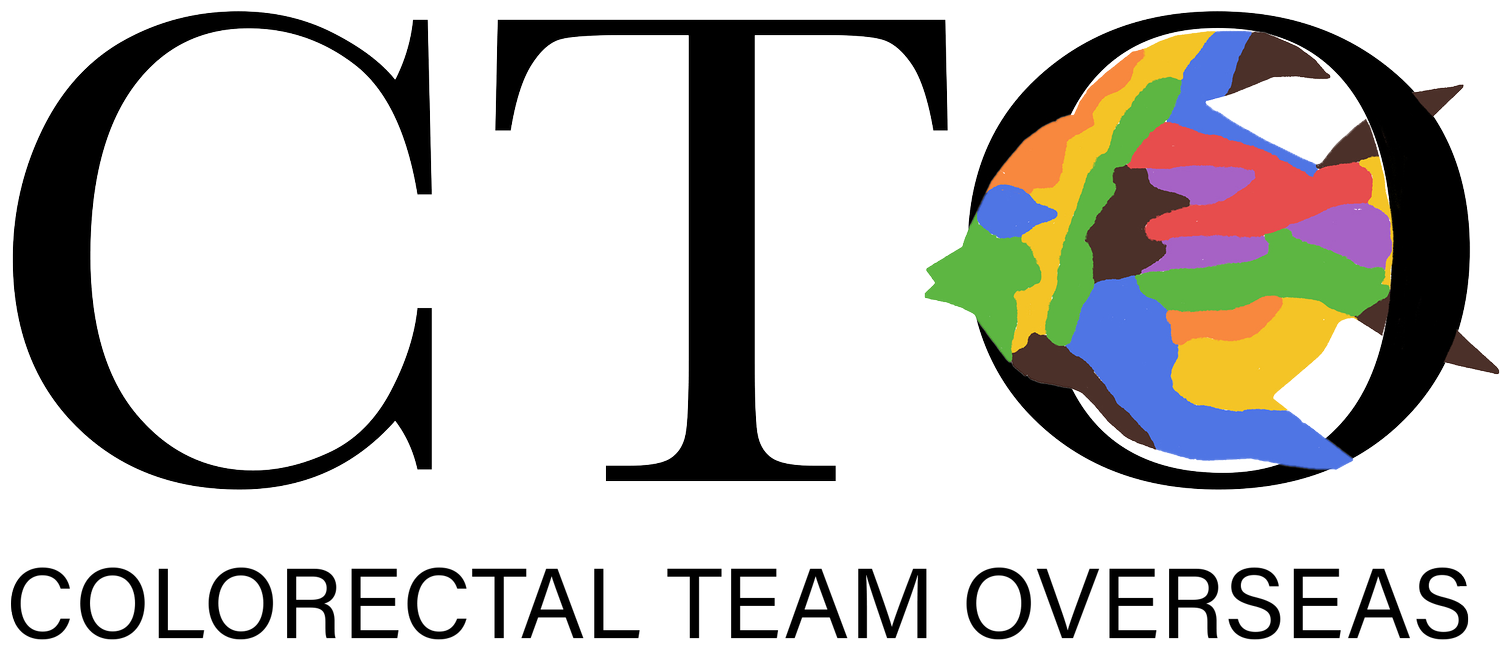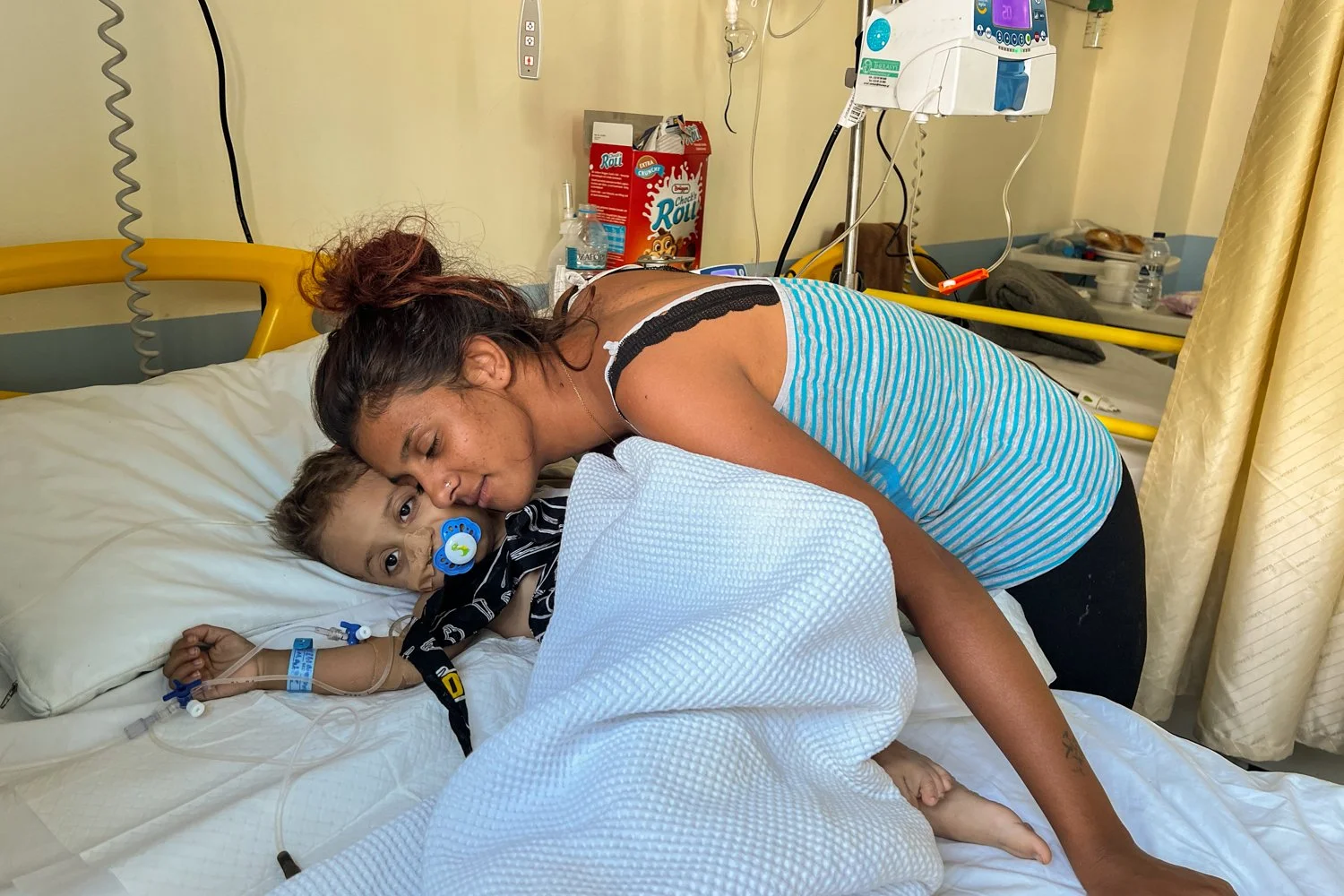Make a donation
In the developing world, access to safe surgical care is seriously inadequate. We`re changing that. Please help us continue our global mission to repair children and teach medical staff to care for current and future pediatric patients. We welcome any size donation to support this global pediatric cause.
What CTO does with your support
Video message by Dr. Marc Levitt | CTO Founder & Pediatric Surgeon
Our Impact
On each mission, we assemble an entire Surgical Team (approximately 15-team members) to care for 20-40 patients with colorectal malformations. This team includes pediatric surgeons, operating room nurses, clinical nurses and coordinators, as well as supplies and equipment. Our impact goes far beyond the children we treat, because as we operate, we train regional doctors and nurses to care for children who may face these problems long after we leave. We welcome any size donation to support this global pediatric cause.
To All Health Ministers
Video message by Dr. Marc Levitt | CTO Founder & Pediatric Surgeon
Reflections on a Colorectal Team Overseas Trip
Julie Choueiki
I serve as the Director of Nursing and Education on the Colorectal Team Overseas (CTO). I wanted to share a personal perspective on the impact of philanthropy on CTO’s mission to help children around the world. I have been involved with CTO and worked alongside Dr. Levitt for nearly 10 years, in 2 hospital systems. I have travelled with CTO on multiple trips. Sometimes, I don’t travel with the team, but instead meet virtually with the surgeons in host countries prior to the CTO team’s arrival and arrange for nursing education to be provided by our team to their ambulatory, inpatient, and surgical nursing staff, as well as to the patients and families affected with colorectal conditions. The skilled care of these patients before, during, and after their surgeries impacts their surgical outcomes in a tremendous way.
One trip I experienced is exemplary of all our travels. It was my first CTO trip, to South Africa, and I experienced first-hand the impact our presence made on care delivery in that country and the direct affect it had on the children. Our nursing team was present in their clinic for three days before leading a conference for nurses taking place in conjunction with a surgical conference that Dr. Levitt was leading. Over 40 nurses attended from South Africa and neighboring countries.
In the opening of our educational session, we showed a picture of our beautiful hospital, the rooms within it, and shared our basic statistics; numbers of inpatient beds, nurse to patient ratio, allied health members who facilitated our team, etc. We had to wait for 5 minutes for the room to quiet down. The nurses were astonished. They came from a place that needed everything, the most basic supplies to keep children not just healthy, but alive! At that moment, I panicked, thinking, “what could we possibly teach them with the limited resources they had?” I feared they would look at our team as a “pipe dream”, people living in a bubble with nothing to contribute to their very different world.
We spent the next two days teaching them everything we knew; how to recognize and identify disease processes or malformations and how to care and treat these patients in the hospital, clinic and in the home setting. We quickly learned that these nurses were resilient and adaptive, and we all became creative in brainstorming with them solutions to their environmental obstacles and ways to adapt our methods to fit their situation. Sometimes, we had no answers for their challenges, but we never stopped encouraging them and educating them. This was the gift we could share, our knowledge, vast experience, and shared empathy for our mutual patients. We had taken a limited amount of supplies with us to use for teaching. When we saw how great their needs were, we quickly changed our plans to utilize only a sampling of what we brought for education so that we might leave more supplies behind, for their use on future patients.
When it was time to depart I, along with my team, were heartbroken at the thought of leaving these nurses and the children of South Africa. They had inspired and humbled us with their dedication in the face of great adversity. We had hoped we had made a difference, but we felt as though we barely scratched the surface in meeting their needs. However, upon returning home I received a letter from their lead nurse stating that among other things,
Two of the hospitalized patients our nurses visited had improved greatly after their mothers were successfully able to care for them at home having been provided the proper education from our nurses.
For the first time in 6 months, they were able to supply five other patients with supplies that we left behind making the follow up care for those children more likely to be successful.
And finally, the feedback she gave us that shows our work will continue long after we had left the country, “I had a nursing volunteer arrive at the clinic who had attended your education session. She had been so inspired by your team and everything she learned that she elected to enroll in nursing school. Your team left your mark on us, and for that I am eternally grateful.”
Support of Colorectal Team Overseas affects and improves the care of children everywhere around the world. The impact of such generosity will enable us to send our team to these countries, perform life-changing surgeries, educate their medical teams, provide teaching for skilled care to families, and provide necessary supplies in countries where needs are great. I cannot think of a greater legacy to leave.
Collaboration with governments
Video message by Julie Choueiki | Director of Nursing and Education










